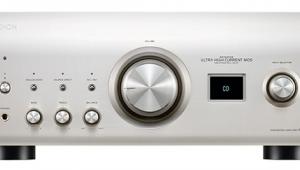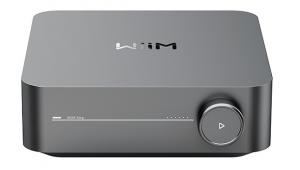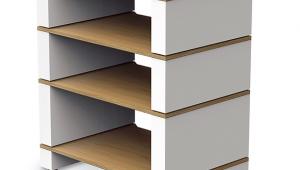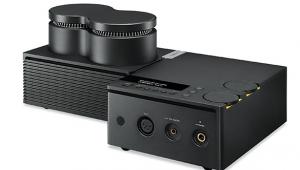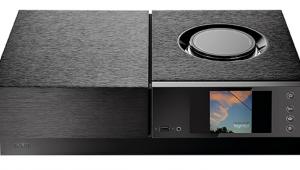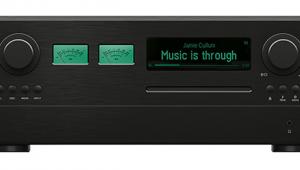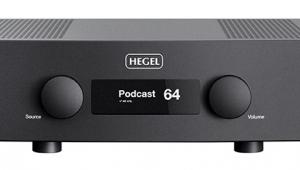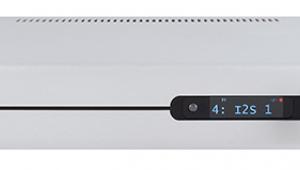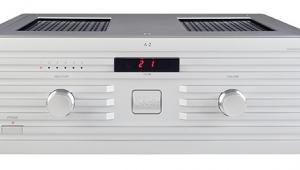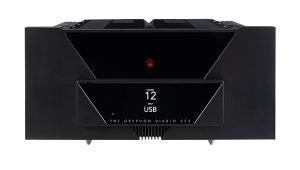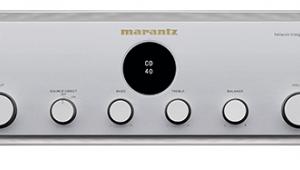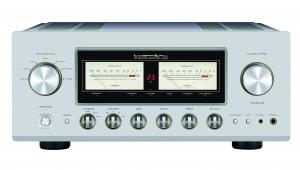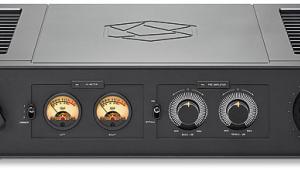Primaluna Prologue Premium Integrated (£2349)
Emblematic of the evolution of the Chinese-made valve amp is PrimaLuna's ProLogue Premium - in case you hanker after a value-for-money integrated with no rough edges
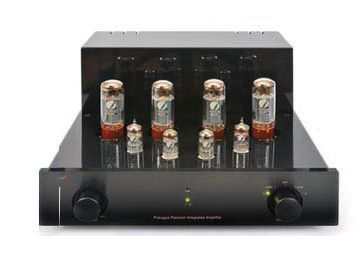
This year, my son turned 21 and graduated from university. That was enough of a reminder of time’s passage to depress me. Far less cataclysmic an indicator was another shock to the system (metaphorical, I stress) in the form of the PrimaLuna Prologue Premium Integrated Amplifier.
It’s not that the original, which ‘legitimised’ Chinese-made valve amps for Western consumers, was shabby by any means. It wasn’t shabby at all, which is why it was so noteworthy. But the Premium? The duckling has entered the swan phase.
TIMES HAVE CHANGED
Think back to 2003-4. Chinese-made valve amps had been around for a decade but were still notable for the unintended adventures that went with ownership. Would you lacerate your fi ngers on the unpolished edges of the fascia? Would a valve explode, a speaker turn into a Weber Barbecue, a cable into a sinuous river of melted copper and plastic?
To appreciate what PrimaLuna, and those that followed in its wake, have achieved, please, for a moment, adopt the audio equivalent of the suspension of disbelief. Forget that China has utterly decimated a vast percentage of global industry and manufacturing, by both its pricing and a work ethic that’s disappeared in the West. It is now a fact of life, and you can bet your ear-buds that more than 75% of the items you own would cost double if not for this. So, if you want your cake cheap, and to eat it too, don’t complain if the bakery happens to be in Guangzhou.
Much as I’d love to see this amp sourced from Hythe or Swansea or Little Gidding, the world has changed. More importantly, it is no longer acceptable to discriminate against the Chinese (as did every union or manufacturer here in the UK, in the USA, etc) for being better at everything than the rest of us.
Because PrimaLuna is ostensibly Dutch, with its designers and owners based in Holland, and with company representatives overseeing its workforce in China, the brand’s arrival seemed somehow less threatening than (as a bluesman would have sung it in less politically-correct times) ‘dealing with the Devil’.
Herman van den Dungen’s attitude, as he told me at the time, was: ‘I can offer European hi-fi consumers valve amplifi ers that would cost double if made in France, Germany, Holland, Italy or the UK. Should they be deprived of this?’
What Herman also cited was the need to adapt Chinese-made audio equipment to Western standards. By investing heavily in time and manpower, PrimaLuna was able to defi ne precisely what the product needed to be, and to expect that result in reality. As one who has used at least a dozen PrimaLuna components in recent years, and who keeps a base model as a budget reference, I can state from my own experience that I have suffered not one single malfunction – not even a blown fuse, let alone a Sino-Dutch conflagration.
Those who have stayed with me so far without bursting into a chorus of ‘The Red Flag’, are in for a treat. The ProLogue Premium is as far removed from first generation ProLogues as they were from the Chinese offerings of the 1990s. The styling has evolved from generation to generation, as with Porsche 911s or iPods – better finish, fit, feel.
SPECIFICATION UPGRADES
The original’s folded-metal cover has been replaced with a handsome curved lid made up of horizontal metal rods, a solid metal frame and glass side panels. The controls are nicer to use, the cylindrical anodised aluminium remote is so well-made, slick and tactile that you’ll play with it as if it were Greek worry beads (now there’s an industry worth investing in circa 2011).
It is, however, still unmistakably a PrimaLuna. The fascia sees only the rotary volume and source selectors, with LED indicators, while the right side includes an on/off rocker and the left a rocker to choose between EL34 output valves, as used in this review, or the optional KT88s. Another option is an internal phono stage, not assessed here.
What the Premium provides are hand-assembly, hard-wiring, and fi ve coats of paint – the colour is a dark sapphire that changes with the light. The company’s Adaptive AutoBias and Soft-Start circuits are there to prevent tube failure; you have ‘bad tube’ indicator LEDs, four EL34s output tubes, four 12AU7s for the preamp section and ‘premium’ parts, which include the power supply’s toroidal transformer, potted, US-made output transformers, ceramic valve bases, ALPS Blue Velvet volume control, Nichicon and Solen capacitors, and goldplated phono sockets and speaker terminals.
The remote controls volume, mute, and source selection (as well as the play/pause and stop/eject functions of the matching ProLogue Premium CD Player). Installation is a no-brainer – four minutes from shipping container to sound reproduction. Given its price tag of £2349, I fi gured that the circa-£1000 Quad 99CDP 2 was a reasonable choice of source, while speakers used with it included Spendor 11ohm LS3/5As, Tannoy Mini Autographs and MartinLogan Scenarios.
As is my wont, I left the room immediately upon putting in the fi rst CD, paying little attention to the unit from cold. Even so, an initial impression provided enough of the Premium’s character to render delays awaiting full warm-up as pretty well unnecessary prior to serious listening.
TWO AIMS
Those accustomed to earlier PrimaLunas, as far back as the original ProLogue One, will recognise its deliciously schizophrenic stance, somewhere between vintage and modern. Van den Dungen certainly voiced this to have an affinity with analogue (which is where his heart lies) but he also ensured that the bass was taut enough, dry enough to address current tastes, while the treble is fast and extended. And there’s no sacrificing the crispness needed to convey the attack of, say, electric lead guitar.
On Earl Hooker’s ‘Sweet Black Angel’, an extended and deliriously fluid lead break possessed a clarity that defied the age of this mono blues classic. Rich and liquid – that had to be the ‘tubeness’, while the crisp attack acquiesced the modern.
Vintage blues records are a constant source of surprise because many were produced with scant concern for ultimate sound quality. With systems such as modern audiophiles employ, and deft remastering, the clouds part. And so it appeared with an early Buddy Guy track, ‘Sit And Cry The Blues’, from 1958, rendered so clean that only its mono status betrayed its age.
From the same period, but recorded with state-of-the-art equipment, were standards sung by the indecently-underrated Keely Smith. Her vocal power and clarity, made more distinctive by her slight Virginia accent, were the match of any distaff singer of the Clooney/Lee/ London era. With all the muscle that Capitol could muster in the studio, and with Louis Prima not hamming it up, she soared.
Via the Premium, brass and string backing has a shimmer and sheen, with plenty of ‘air’ and space to suggest huge scale. The chills were provided by her voice, rendering me positively lachrymose upon hearing ‘Someone To Watch Over Me’.
RETRO-MEETS-TOMORROW
Off to the raunchfest that is 2005’s live set from Dave Alvin and the Guilty Men’s The Great American Music Galaxy. His signature tune, ‘Marie Marie’, played with haste and vigour, employs a drum sound that perfectly embodied the retro-meetstomorrow capabilities and signature sound of PrimaLuna.
Stage left, a nasty, punky guitar lead slithers out, bottleneck-withgrit, to the front of that rock-solid rhythm section – Alvin’s vocals dead centre, a stage spread across the listening area. Little details peppered the performance during quiet interludes: I was reminded of the distance of the solo guitar in Buffalo Springfield’s ‘Sad Memory’ that sounded as if it might have been recorded ‘across town’. Less crowded material, including the latest from Eleanor McEvoy, will antagonise those who swear by solid-state regardless of circumstances: at no point did the PrimaLuna ever betray its valve content with any tube-y noises, ‘benevolent’ or ‘euphonic’ distortions, nor anything else that tints one’s lenses an artificial, if ear-cosseting, shade of rose.
Her voice, with the most sparse of instrumental accompaniment, enjoyed the kind of spotlight showcasing that qualifi es as demoquality. You can’t fail but think of terms like ‘palpable’ and ‘authentic’. For total contrast, I poured Bad Company’s ‘Can’t Get Enough’ into the Premium, just to prove myself wrong – masochist that I am. The sense of musical force, while hardly enough to cause companies like Levinson or Chord any sleepless nights, was made real by sheer impact, with only the merest hint of compression.
Same for Lynyrd Skynyrd’s ‘Sweet Home Alabama’ and ZZ Top’s ‘Tush’. If the speaker isn’t too hungry, the ProLogue Premium Integrated Amplifier rocks more convincingly than it really has a right too.
VERDICT
It’s impossible not to be impressed with this PrimaLuna. £2349 is hardly ‘budget’, but it’s still far-removed from the £4000-£5000 amps it emulates. It only reveals economies, and ones which I doubt are remedied completely by KT88s, in terms of absolute power. But feed the Premium into a reasonably sensitive speaker, and you’ll rarely want for more. And, please, put down that remote. It’s not a toy!
Originally published in the November 2011 issue



